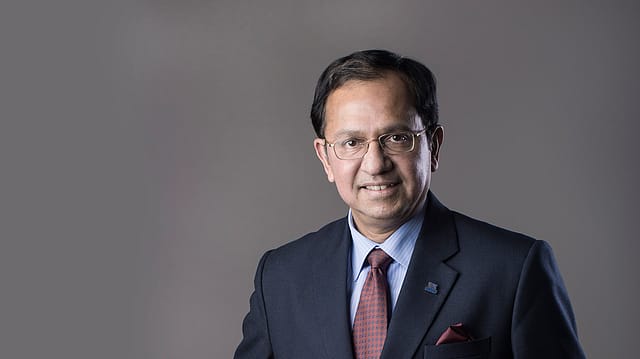India will face a new normal post crisis: Nestlé India CMD
ADVERTISEMENT

India will be facing a “new normal,” when the current crisis caused by the Covid-19 pandemic eventually blows over, and companies will have to prepare themselves to respond to the altered environment, says Suresh Narayanan, chairman and managing director, Nestlé India, the Indian arm of the global foods and beverage giant based in Vevey, Switzerland.
For one, the way FMCG (fast-moving consumer goods) companies advertise will undergo a sea change, Narayanan observed. “In terms of brand campaigns alone, advertising that reflected an ‘out of home’ experience, may pave the way for more ‘in-home consumption moments,” Narayanan stated. This is in direct response to the anticipated reality wherein people prefer to stay indoors and avoid public places with large gatherings.
The Covid-19 pandemic has rapidly spread across India over the past few weeks, infecting more than 6,400 people and resulting in 199 deaths. Since March 25, the country is under lockdown; people are being asked to stay indoors and practise social distancing. There is every possibility that the lockdown may extend beyond April 15, the original date till which the measure was planned to contain the spread of the virus.
There have been multiple reports of supply chain disruptions that have led to essential commodities like vegetables not finding their way to retail shelves across the country adequately. In such a situation, with people stuck at home and having to cook their own food every day, the sales of Maggi, Nestlé’s hugely popular brand of instant noodles, has seen an uptick and the company is trying to reach closer to the consumer in this period of crisis. “Even today, we understand the respect and love consumers have for our brands, especially Maggi and therefore, we have been reassuring them that we are doing everything we can to make sure Maggi is available,” said Narayanan. “Also, we understand there are consumers whose Maggi consumption may have gone up. For them, brand Maggi is going to initiate a first-ever recipe service campaign which will help to cook conveniently at home and also bring variety and innovation.”
Narayanan is no stranger to crises. In 2011, he was stationed in Cairo and was leading Nestlé’s operations in Egypt, Libya, and Sudan at a time when civil unrest loomed large, with the Arab Spring movement crippling normal life. Encouraged by his leadership in troubled times, the Swiss company deputed him to lead its Indian operations in 2015, when a controversy surrounding Maggi saw the product being banned in several Indian states and dented Nestlé India’s financials. Narayanan was successful in leading Nestlé India back to the growth path with growing sales and profitability.
On the basis of his previous experience in dealing with different kinds of crises in business, Narayanan said that a company will always go through periods of stress, including the current pandemic and its implications on business. “Every crisis leads a company as well as society at large back to its values. What we are witnessing is a public health emergency, far graver than anything as a society we have ever been through,” Narayanan said. “At Nestlé India, during these unprecedented times, we go back to and reaffirm our 154-year-old purpose of enhancing the quality of life and contributing to a healthier future, a cause even more relevant today. We heed to a call of duty to ensure that the much-needed food and beverage products are available to our consumers and communities throughout the country.”Stressing on the importance of working along with the larger community during the current crisis, Narayanan pointed out that, despite logistical challenges, Nestlé India continued to procure every last litre of milk produced by the 100,000 dairy farmers with whom the company works and took it to the factories for processing.
Nestlé India is also cognizant about the fundamental shift in organisational behaviour brought about by the Covid-19 crisis and companies’ response to it, Narayanan said. “Ways of working are also expected to evolve, as the long lockdown period has dispelled many of the notions associated with effectiveness issues while working from home,” he pointed out. “Each of us has had to embrace new and very different ways of working in terms of ‘work-from-home’, and been subject to stresses, fears, and anxieties never before experienced.”
To help employees tide over this period of anxiety, Nestlé India has rolled out a number of virtual engagement programmes like training sessions and mental health initiatives. The FMCG company, which reported a turnover of ₹12,368 crore in calendar year 2019, is also rolling out a programme called Nestlé Suraksha for its distribution partners, whereby it will offer Covid-19 insurance to all those not covered under the Employees’ State Insurance scheme for a period of three months. These partners are also being paid 100% of their sales incentives to keep them motivated. Through another programme called Nestlé Samman, the company will recognise and reward each factory operator who continued to work during this period of difficulty.